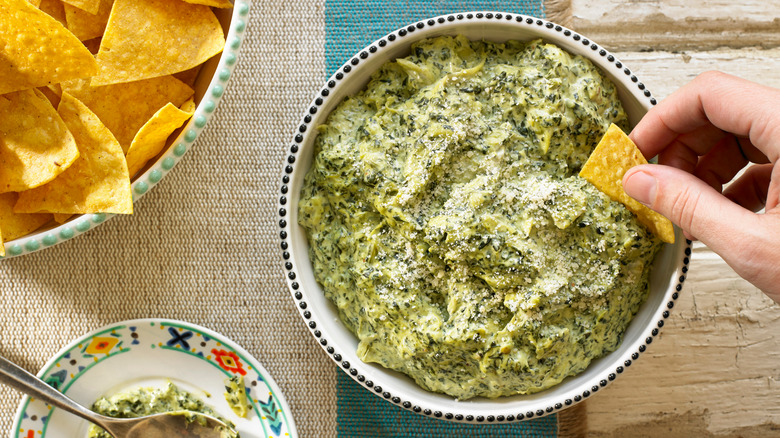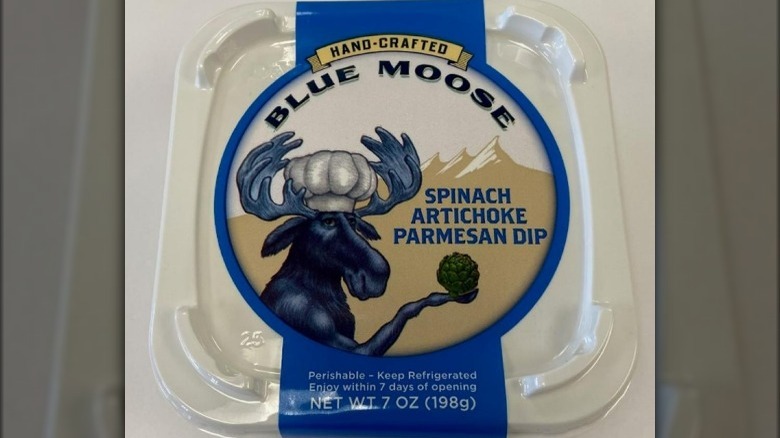Everything You Need To Know About The West Coast Dip Recall
Whether you buy store-bought dip or make your own, chips and dip is one party appetizer guaranteed to impress all your guests. In fact, store-bought dips are so popular that they can reach nearly $40 million in sales just within the week leading up to the Super Bowl, per SNAC International.
Although French onion dip is favored by 35% of people, other popular dips include spinach artichoke dip, 7-layer Mexican dip, and buffalo chicken dip. Depending on your dip, you might choose potato chips, tortilla chips, pita chips, or even something less conventional like pretzel thins (via The Kitchn). Different strokes for different folks, right?
However, if you currently have a store-bought dip in your fridge, you should be aware of a recent recall of Blue Moose's spinach artichoke dips, especially if you have a nut or soy allergy. According to a U.S. Food and Drug Administration announced on May 22, a batch of Blue Moose spinach artichoke dip contains undeclared soy and cashews, which can mean big trouble for consumers with allergies.
Your Blue Moose dip might have undeclared allergens
Blue Moose issued a recall for its spinach artichoke parmesan dip after grocery stores discovered that a batch of the dips contained undeclared soy and cashews, per Pop Culture. Affected dips are in 7 oz. containers with the lot number SS446931 and a best-by date of 8/10/22. This recall should only affect select regions in California and Nevada.
No cases of illness have been reported, but the United States Food and Drug Administration still recommends that customers return or exchange the affected dips, as tree nuts and soy can cause extreme allergic reactions in some individuals. While you should think twice about eating cashews even if you aren't allergic, this allergy can lead to unpleasant symptoms and even complications like anaphylaxis (via Verywell Health). An allergic reaction to soy can also quickly become life-threatening.
This recall is just another example of why you should always check the labels on food items and stay on top of active product recalls; it could very well save your life.

